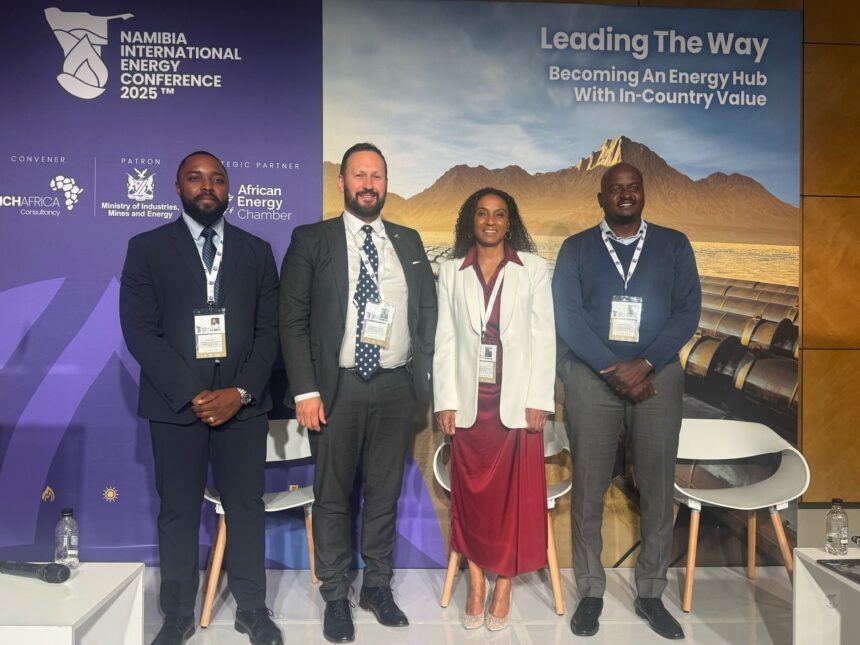Bank Windhoek’s managing director Baronice Hans said the bank remains firmly committed to promoting sustainable solutions in all its financing and investment decisions around the oil and gas value chain.
She made these remarks when industry leaders gathered last week in Windhoek for the 7th Namibia International Energy Conference, where they reaffirmed the country’s ambition for first oil production by 2030.
Prime Minister Elijah Ngurare, on behalf of President Netumbo Nandi-Ndaitwah, officially opened the conference.
President Nandi-Ndaitwah assured investors and industry players of government’s commitment to creating an enabling environment where energy investment can prosper. Speaking during a breakaway session titled ‘Investing in Public-Private Partnerships for Strategic Oil and Gas Infrastructure’, Hans underscored the importance of investing in enabling infrastructure to realise the country’s energy potential.
“At Bank Windhoek, we view our role far more than that of a financier. As a proudly Namibian institution, we are deeply committed to ensuring that the benefits of this emerging sector are widely shared among our citizens. Our goal is to see Namibians not as passive observers, but as central actors and beneficiaries of this national opportunity,” she stated.
“Through our support for local content development and by offering tailored financial solutions to businesses operating in and around the oil and gas value chain, we are actively contributing to the creation of a resilient and inclusive economic ecosystem. We remain steadfast in our commitment to work alongside public and private sector stakeholders to ensure that investments in oil and gas infrastructure catalyse long-term, sustainable national development,” she added.
Hans said Bank Windhoek recognises the strategic importance of capital-intensive infrastructure investments, particularly in sectors such as oil and gas, which have far-reaching economic implications.
“Our approach to public-private partnerships is guided by prudence, purpose and the broader developmental aspirations of Namibia,” she. We adopt a measured, yet forward-looking risk appetite that is informed by robust due diligence, structured risk-sharing frameworks and a commitment to transparency and governance. We prioritise projects that demonstrate long-term viability, alignment with national priorities and inclusive economic potential,” she said.
She stated that local financial services’ institutions have an indispensable and pivotal role in advancing local content.
“Financing is a cornerstone of participation. Without access to capital, local businesses and entrepreneurs cannot meaningfully engage in the oil and gas value chain. Extending local content requirements to include the financial sector is not only prudent, but essential. It ensures that Namibian financial institutions are empowered to serve the sector, and that capital flows remain within the domestic economy. This approach builds institutional resilience, fosters local financial expertise, and enhances national ownership of the sector’s development,” she said.
Capricorn Group and Bank Windhoek participated in the three-day conference with their strategic partner, the Namibia Investment Promotion and Development Board (NIPDB).
NIPDB’s Francois van Schalkwyk highlighted that public-private partnerships are more than financing instruments.
They serve as vehicles for knowledge transfer, innovation and capacity-building.
“But unlocking the potential of PPPs in the oil and gas sector requires more than intent – it demands action. We need institutions that are agile, capable and transparent. And we need investors who are not only looking for returns, but who are also committed to sustainable development and local empowerment,” he said.


